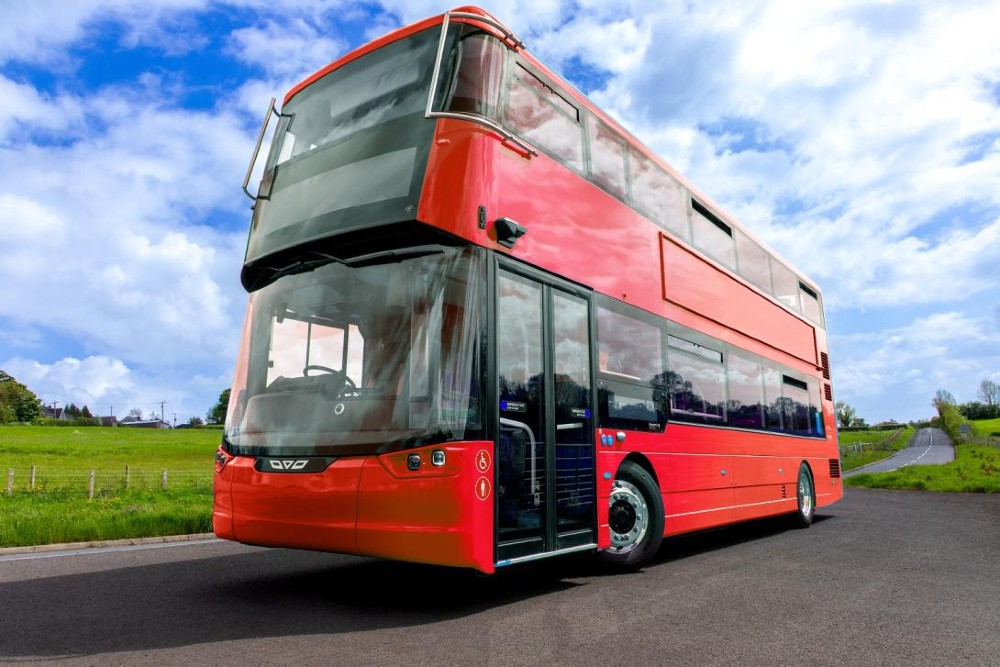Plymouth prepares for the arrival of 50 electric double-deckers
The new electric buses will arrive in Plymouth in two batches – the first 25 in the summer and 25 more thereafter until the end of 2025 – and will mostly be deployed on the city’s 21/A, 42 and 50/51 routes. Six units will also be deployed on route 70, which serves the Rame Peninsula in Cornwall. Although it is not explicitly mentioned, the 50 electric buses are likely to be part of a mega-deal published in October 2024, in the course of which Go Ahead will procure up to 1,200 electric buses from Wrightbus. After all, Plymouth was explicitly named as the location for buses in this major order when the contract was signed.
Those responsible in Plymouth have not provided any details about the buses themselves, except that the buses are more accessible for wheelchair users than their diesel predecessors. As Wrightbus only produces one BEV model in the double-decker segment, the 50 units ordered are likely to be the StreetDeck Electroliner BEV, which is built at the Wrightbus headquarters in Ballymena, Northern Ireland. Unveiled in July 2021, the double-decker electric bus typically offers up to 74 seats and 21 standing places. The batteries are housed in the underbody and rear, and the overall battery pack is available in a 340 or 454 kWh configuration. According to Wrightbus, up to 200 miles (around 320 kilometres) range is possible with the latter energy content. The manufacturer also emphasises the fast-charging capability of the new buses as a special feature: they can be charged via CCS with up to 300 kW and via pantograph with up to 420 kW.
The new electric buses should not only make public transport in Plymouth more environmentally friendly, but also create additional capacity. However, it is not specified how many diesel buses they will replace. What is clear is that Plymouth Citybus is converting its depot in Milehouse into a depot equipped for charging and maintaining the new zero-emission fleet. The purchase of the 50 vehicles is ‘part of a major joint investment of £31.87 million in local public transport’, the city announced. That is the equivalent of around 38 million euros.
The majority of the funding (£19.6 million) is being provided by Plymouth Citybus itself, but grants are available from the government’s ZEBRA subsidy (£10.34 million) and from the city and county of Cornwall (£1.94 million). Cornwall is also ensuring that the six electric buses used to connect the Rame peninsula are provided with charging facilities.
Richard Stevens, Managing Director of Plymouth Citybus and Go Cornwall Bus, commented: “We are proud to lead the way in delivering cleaner, greener, and more sustainable public transport for Plymouth.” The introduction of 50 zero-emission electric buses is a major step forward in the commitment to reducing emissions, improving air quality and providing a modern, reliable passenger service. Additionally, he said: “This investment not only reflects our dedication to the local community but also to a more sustainable future for our city.”





0 Comments